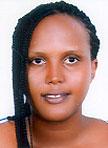Exploring Rwanda’s cultural music
Music plays an extremely important role in Rwandan tradition and culture. In ancient times, music included humorous lyrics about excellence and bravery after hunting.

Doreen Umutesi
